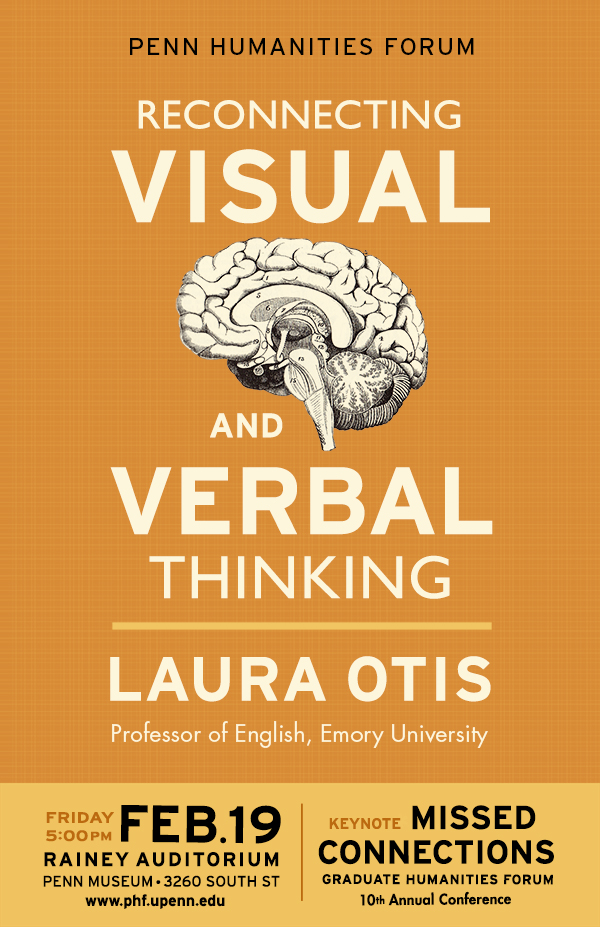2010 Graduate Humanities Forum Keynote Address
In the humanities, many scholars associate ideas with words, but as we hear from our students in composition classes, thoughts suffer in the process of their “translation” into language. English Professor Laura Otis reviews some of the latest findings in cognitive science, philosophy, and literary studies to explain what thought is and whether we can make meaningful connections between its visual and verbal forms.
Laura Otis began her career as a scientist, earning her BS in Molecular Biophysics and Biochemistry from Yale and MA in Neuroscience from the University of California at San Francisco. Before completing her PhD in Comparative Literature from Cornell University, she worked in labs for eight years.
Since 1986, Otis has been studying and teaching about the ways that scientific and literary thinking coincide and foster each other’s growth. Otis works with English, Spanish, German, French, and North and South American literature, especially nineteenth-century novels. She is particularly interested in memory, identity formation, and communication technologies and has been a frequent guest scholar at the Max Planck Institute for the History of Science in Berlin.
She is author of Müller's Lab (Oxford, 2007), Networking: Communicating with Bodies and Machines in the Nineteenth Century (Michigan, 2001), and translator of Santiago Ramon y Cajal, Vacation Stories: Five Science Fiction Tales (Illinois, 2001). In addition to her academic books, Otis has written four novels. In 2000, she was awarded a MacArthur Fellowship for creativity.
Professor of English, Emory University



